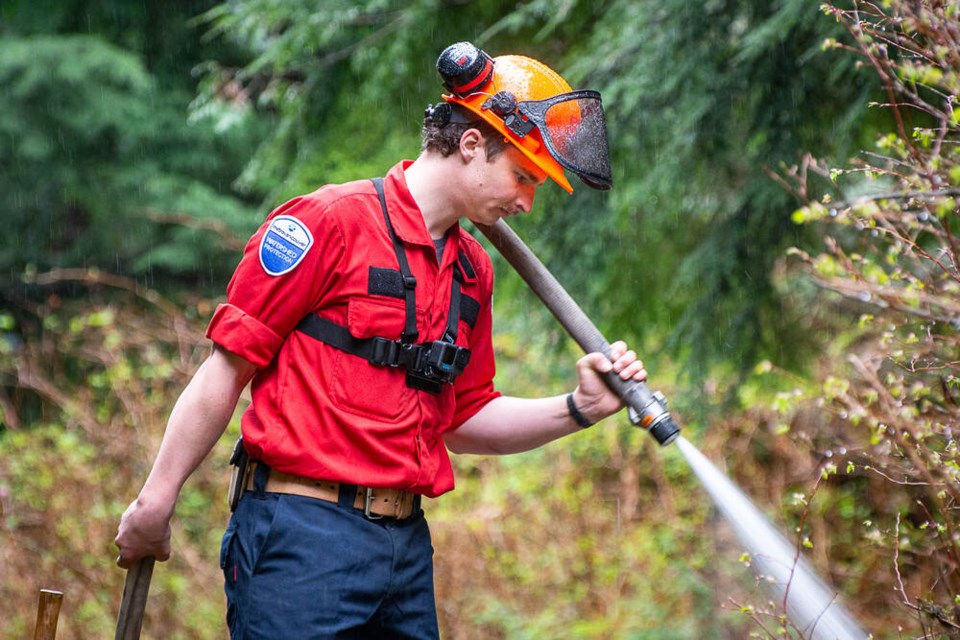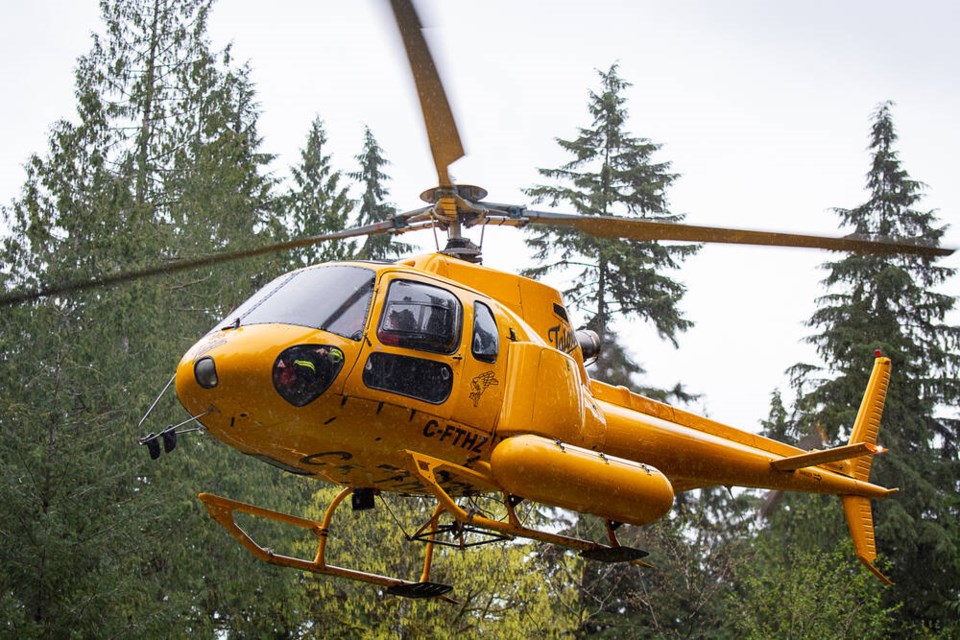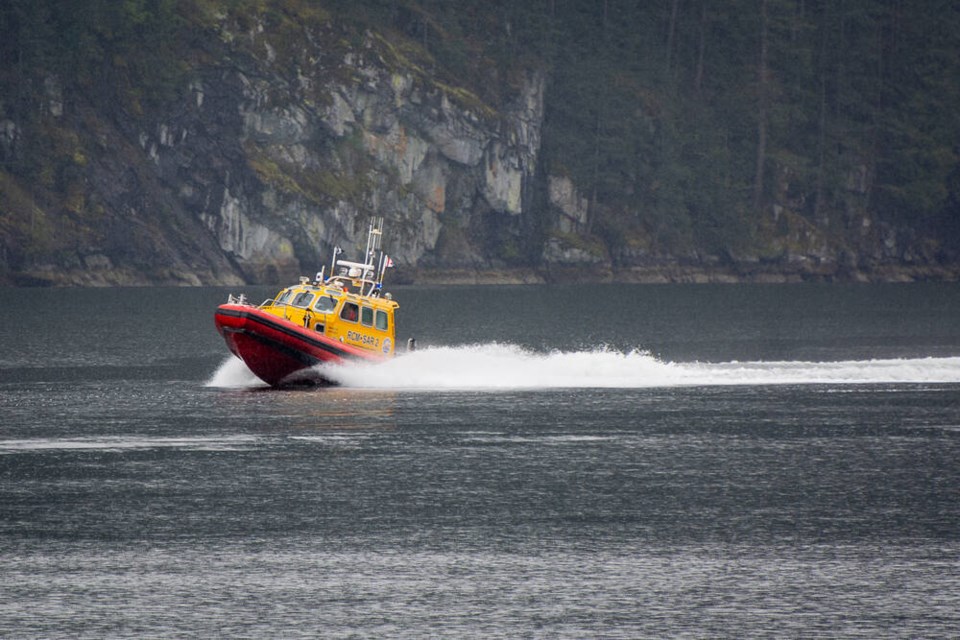It’s 9 p.m. on the first day of the sweltering month of August. As the sun is setting, a recreational boater notices a glow from a depression on the eastern slopes of Indian Arm – the more they look, the more they become certain that what they’re seeing is a wildfire.
Actually, it’s 9 a.m. on a rainy April 11, and District of North Vancouver Fire & Rescue Services is preparing to launch a multi-agency exercise in response to a mock wildfire at the boat-access-only Camp Jubilee.
At an introductory briefing in Deep Cove’s Panorama Park, dozens of personnel gather from the likes of West Vancouver Fire & Rescue, North Shore Rescue, North Shore Emergency Management, Royal Canadian Marine Search and Rescue, BC Wildfire Service and Metro Vancouver Watershed Protection.
Effective collaboration is a critical marker of success when it comes to responding to emergencies like this, says Mike Danks, Chief of DNVFRS.
“Exercises like this are extremely important,” he said. “They help us identify functional strengths and gaps in our responses, and give us an opportunity to improve and increase our preparedness before an actual event happens.”
Last year’s wildfire season was one of the most destructive in the province’s recorded history. With snowpack levels already well below average, and hot weather forecasted to follow, experts are anticipating another tough wildfire season.
“The mountains are our backyard on the North Shore, which makes us particularly vulnerable to wildfires,” Danks said. “Our priority is to be as prepared as possible for scenarios like this.”
In the scenario, strong winds quickly turned the smouldering remains of a kayaking group’s campfire into a five-hectare blaze by the time it was first discovered. On the day of the simulated exercise, the mock next morning, that wildfire had grown to 20 hectares.
NSEM has activated the emergency operations centre, declared a local state of emergency and issued an evacuation order.
In the mock exercise, emergency crews and supplies are brought to Camp Jubilee by boat and barge. Carrying a fixed line with cargo on the end, a Talon TwinStar helicopter flies in lines of hose and a gas-powered water pump.
After the site is assessed by team leaders, crews execute various orders around the camp. One of the exercise’s key priorities is to get water onto an area where the mock fire is burning, simulated by bright-coloured tape and toilet paper on the ground.
With some tinkering, the pump gets started and the flat hoses become plump with water from a nearby creek. Along a path that winds to various sites at the year-round youth getaway, a Metro Watersheds firefighter successfully knocks down the single-ply flames.
While the day's dangers were just fiction, the North Shore is that much more prepared for the next time real trouble sparks.







